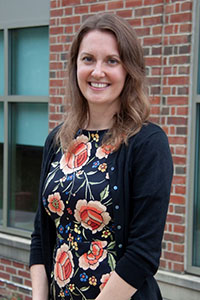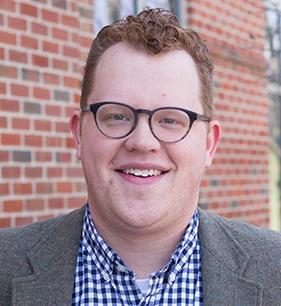PACS Faculty and Courses
Below is listed more information on Faculty who teach the core PACS courses and details about each course.
Eric Seibert is a Professor of Old Testament and also serves on th e PACS Advisory Committee.
e PACS Advisory Committee.
BIBL 291: Issues of War, Peace, and Social Justice in the Biblical Texts
This class is a study of the major Biblical texts pertaining to war, peace, and social justice issues, with attention to their application past and present. This course assesses the traditional Christian stances toward war and also deals with more recent developments such as terrorism, pre-emptive strike, nonviolent resistance, and active peacemaking, all from a biblical perspective. It also explores related issues like the relationships between patriotism, military service, nationalism, and Christian citizenship in the kingdom of God.
It has been my privilege to serve on the Peace and Conflict Studies Committee for a number of years. I am strongly committed to peace education and am grateful to be part of a committee that oversees both a major and minor in Peace and Conflict Studies at Messiah. I also appreciate the work this group does planning and sponsoring programming that allows students to learn more about peacemaking and the nonviolent resolution of conflict. Since I am personally committed to living nonviolently, it is very rewarding to be part of a group that gives intentional thought and planning to these issues on campus.

Sarah Myers is an Assistant Professor of U.S. women’s and gender history, public history, oral history, human rights, veterans studies, aviation, and war and society.
HIST 248: History of War Peace and Memory in America
This course offers a study on the experiences of war and peace in American history and the creation of collective memory through national narratives, the media, and popular culture. Themes include propaganda, PTS(D) and its precursors, veteran studies, trauma, the integration of various groups into the military, gender roles, and social movements for peace. The chronological focus is on the American Revolution, Civil War, the world wars, Cold War era, the all-volunteer military, and current issues. Class discussions will be based on assigned books, articles, primary sources, and films. During the semester, you will engage with the collective memory of war and peace as you examine questions of whose histories are remembered and forgotten, the ways myths of war are created for political purpose, definitions of heroism, and how memories of war shift over time.
Lorraine Stutzm

an Amstutz is an adjunct lecturer for the PACS department.
Lorraine is the co-director of the Office on Crime and Justice for the Mennonite Central Committee. She serves as denominational minister for Peace and Justice for Mennonite Church USA She has worked in the field of victim-offender mediation since 1984.
She has co-authored a curriculum entitled "Victim Offender Conferencing in Pennsylvania's Juvenile Justice System", The Little Book of Restorative Discipline for Schools, and is the author of The Little Book of Victim Offender Conferencing. She received her BS in social work from Eastern Mennonite University, where in 2002 she was awarded the Distinguished Service Award. She holds a master of social work from Marywood University.
PACS 201: Basic Conflict Mediation
This course provides instruction in such essential skills as empathetic–communication, active listening, productive questioning, managing group dynamics, consensus building, and collaborative problem-solving. An understanding of the sources of conflict, coupled with knowledge of conflict styles, enhances the ability to resolve disputes and enables the conflict specialist to work in a variety of settings. This course also provides an overview of the theoretical and practical aspects of the mediation process. It involves learning a step-by-step process to conduct mediations and practice fundamental dispute resolution skills, such as listening, reframing, summarizing, problem-solving, and creating a safe, non-threatening environment.

Devin Manzullo-Thomas is the Director of the Sider Institute for Anabaptist, Pietist, and Wesleyan Studies and Assistant Professor of American Religious History. In role as Director, he helps the university community (and its founding denomination, the Brethren in Christ Church) to understand the distinctive theological traditions that have shaped Messiah’s history and continue to inform its present. Peacemaking has always been a part of Messiah’s theological tradition. He is proud that the university continues to value the notion of promoting truth, justice, and nonviolence in a world riddled with conflict, oppression, and deception, and does so by training women and men to be active peacemakers and reconcilers through its PACS program.
PACS 495: PACS Senior Seminar
The capstone course for the Peace and Conflict Studies major is particularly important because it will enable students to integrate their inter-disciplinary study, their PACS studies, and their Christian faith. The oppurtunities and challenges of pursuing PACS as a vocation will be examined, and students will engage in indepedent reserach and writing which explores a personal area of interest relevant to PACS.
Malcolm Gold is an adjunct professor of Sociology. His principle interests are in the sociology of religion, social theory, and cultural studies. Current projects include an exploration into motivation within mission activity and an introductory textbook on the sociology of religion.

SOCI 335: Social Conflict and Reconciliation
A study of social conflict and strategies for preventing and resolving destructive conflicts. Particular attention will be given to ethical and moral perspectives on justice, conflict, and conflict resolution. This course will draw on literature and perspectives from sociology, philosophical and theological ethics, and peace and conflict studies. The course will include case studies and “hands-on” exercises to develop skills for resolving personal and group conflicts. Meets General Education Ethics in the Modern World requirement.
 George Pickens is a Professor of Theology and Mission for the Biblical and Religious Studies Department. Dr. Pickens is also the Director of the PACS program and Chair of the PACS Committee.
George Pickens is a Professor of Theology and Mission for the Biblical and Religious Studies Department. Dr. Pickens is also the Director of the PACS program and Chair of the PACS Committee.
INTE 391: PACS Internship
This practical work experience will provide juniors and seniors with a means to explore career options and to enhance their skill set under the professional supervision of the Internship Center staff and Dr. Pickens, the PACS Internship Advisor.
 Jason Renn is the Assistant Professor of Politics. His areas of expertise lie in the fields of International Relations - Interstate War and Civil Conflict, Peacekeeping, International Law Comparative Politics - Democratization, Sub Saharan Africa, East Asia Methodology - Quantitative Methods, Causal Inference, and Data Visualization.
Jason Renn is the Assistant Professor of Politics. His areas of expertise lie in the fields of International Relations - Interstate War and Civil Conflict, Peacekeeping, International Law Comparative Politics - Democratization, Sub Saharan Africa, East Asia Methodology - Quantitative Methods, Causal Inference, and Data Visualization.
POLI 366: Causes of War
In this course, students will investigate the causes of war through the lens of social science and consider political policies designed to manage and mediate violence. Topics include interstate wars, civil conflicts, peacekeeping operations, and crisis negotiations. At the end of the course, students will present a quantitative case study or research design applying one of the theoretical frameworks of the course, in a format suitable for a policy audience.